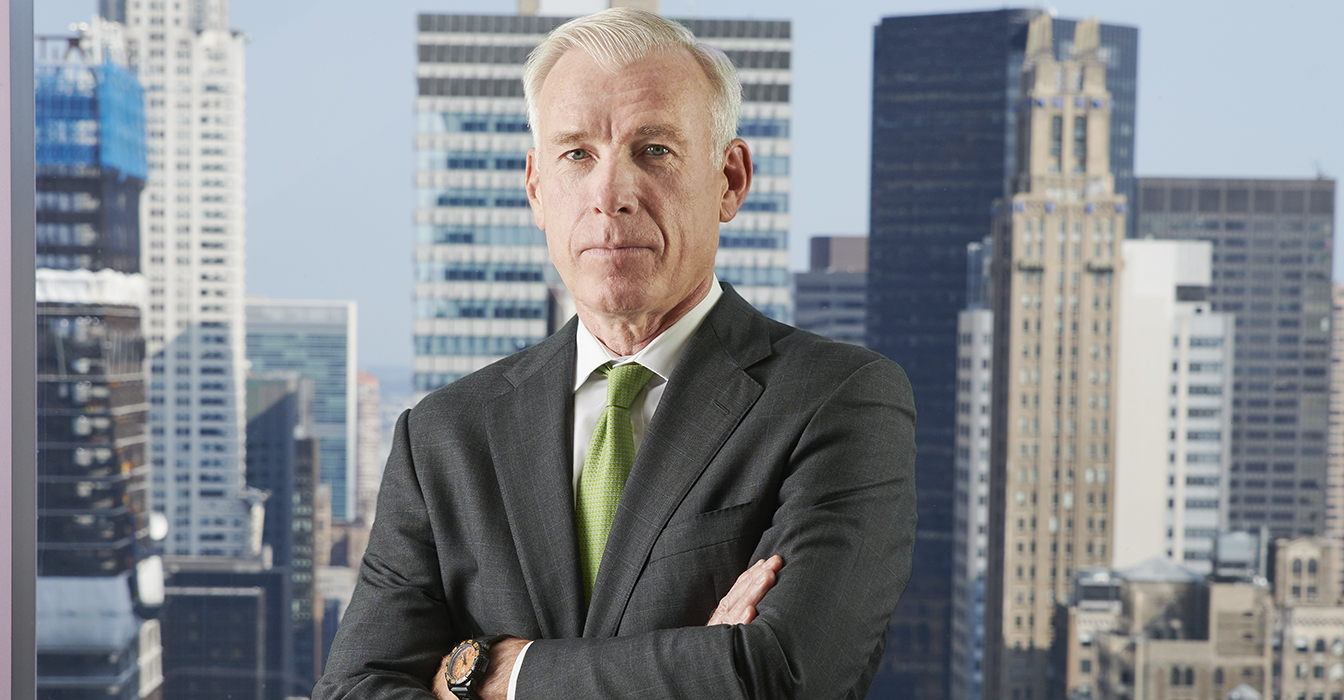Lawyer Limelight: David Kelley
By John Ryan | October 7, 2019 | Lawyer Limelights, Dechert Features

Few lawyers nationwide boast the high-profile track record that Lawdragon 500 member David Kelley has built over the course of his stellar career. As a federal prosecutor in New York, Kelley led the Southern District’s organized crime and terrorism unit, playing a lead role in investigating and prosecuting terrorists before and after the Sept. 11 attacks. He served as the U.S. Attorney for the Southern District from 2003 to 2005, and joined Dechert from Cahill Gordon in 2017 to lead the firm’s white collar and securities litigation group. Like the renowned practice’s co-leader, London-based Neil Gerrard, Kelley began his career as a police officer.
Lawdragon: We explored this quite a bit in the Roundtable, but as co-leader of the white-collar practice can identify a core trait that helps your team stand out?
David Kelley: Staffed by some of the most distinguished former federal prosecutors in the U.S., as well as the most experienced white-collar attorneys abroad, from the UK to Hong Kong and elsewhere, we are able to swiftly and effectively address any problem anywhere before almost any authority.
LD: Among your recent work, we’d be remiss not to ask about your representation of James Comey, who testified before Congress about his interactions with the President and was recently cleared of any criminal wrongdoing, related to the memos he kept, by the Justice Department’s Office of Inspector General. Are there any thoughts about that client matter that you can share?
DK: Jim has led a distinguished career as a public servant and it is unfortunate that he has been sucked into a vortex of partisan bickering. Nonetheless, he has continued to cooperate with all inquiries, from Congress, the Department of Justice, and the Inspector General, all of which have required a fair amount of lawyering in in order to keep Jim above the fray of partisanship.
LD: Can you tell us about another recent successful representation by your team, even if you are unable to identify or provide details, that illustrates what makes the Dechert team special?
DK: The most public of our recent representations is that of the Walmart Audit Committee in connection with the protracted DOJ/SEC investigation of Walmart’s alleged FCPA violations, which was initiated by a Pulitzer Prize winning expose in the New York Times, but which ultimately was shown by counsel to be more worthy of the Pulitzer for fiction than for journalism. This case ended with a settlement worth a mere fraction of that predicted by the FCPA pundits.
LD: What are the qualities you look for in recruits to your team? What kind of lawyer really succeeds in Dechert’s vaunted practice?
DK: Smart, committed lawyers.
LD: How did you first become interested in being a litigator?
DK: As a police officer after college, the natural progression for me was to go to law school, and once in law school I saw the movie “Wall Street” and was sold on becoming a prosecutor. I’m very passionate about being a lawyer and I love solving problems.
LD: Where were you stationed as a police officer and can you share some of your memories of that work?
DK: As a police officer you are confronted on a daily basis with people at their worse and on their best behavior. An emotional seesaw is the daily norm that provides a cram course in how to calmly address the most intense crises.
LD: Why did you choose Dechert after your time at Cahill?
DK: Dechert has a broad and diverse litigation practice with a very strong international platform, not to mention it is loaded with extremely talented lawyers who are exceptionally collegial.
LD: You prosecuted or oversaw numerous headline cases as U.S. Attorney, including those of John Walker Lindh and Martha Stewart, as well as leading the investigations of the USS Cole and prosecuting Ramzi Yousef for bombing the World Trade Center. Can you tell us about two or three of your cases in which you take the most pride and why?
DK: They all are important cases in which I take tremendous pride and gratitude for having had the opportunity to serve the public trust. One case that stands out in my mind is a murder case I prosecuted successfully having committed to the parents of the victim I would do all I could to take over an investigation by state authorities who, despite their best efforts, were not able to make the case.
LD: Was there an early experience or mentor who really helped shape the course of your professional life?
DK: More than anyone, it was the United States District Judge for whom I clerked after law school, T.F. Gilroy Daly, but I have worked with several lawyers both in the Department of Justice, and in private practice from whom I have learned a lot, even to this day.
LD: What hobbies keep you occupied outside the practice of law?
DK: My family and golf.
LD: Are you involved in any pro bono or public interest activities? Please tell us what you find meaningful about your time serving them.
DK: I do a fair amount of pro bono work for both private citizens and public officials. It’s always gratifying to provide help that the clients might not otherwise have available to them.
LD: Do you have a favorite book or movie about the justice system?
DK: At the risk of stating the obvious, “To Kill a Mockingbird,” but I also commend to you the book “Devil in the Grove,” a true account of Thurgood Marshall’s career as a civil rights lawyer before his rise to the bench.

